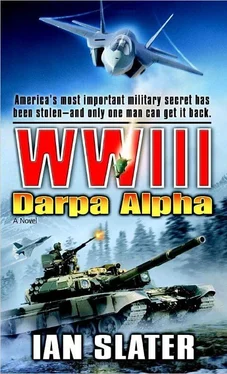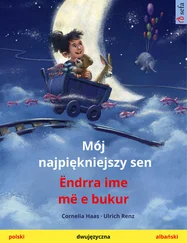Each of these generals, Mikhail Abramov from the Siberian Sixth Armored Corps, Viktor Beria from Infantry, and Sergei Cherkashin from Air Defense, arrived separately at fifteen-minute intervals to be interviewed by the two officials in a smoke-filled booth in Orsk’s Hotel Metropole. The two officials, in their mid-fifties, were dressed in ill-fitting suits, as if they hoped to blend in with the thousands of other government officials all over Russia, but both the fatter, red-faced man and his shorter, rotund colleague nevertheless had the air of bristling confidence that so often accompanies the sudden acquisition of money or power. Shiska —“Big”—and Maly —“Little,” as the three generals would subsequently refer to them, ushered Abramov, Beria, and Cherkashin into the opulent, red-velvet-curtained bar on the mezzanine. Big and Little began the meeting by empathizing with each of the generals in turn. They knew what it must be like, they commiserated with the three career officers, to have been rendered ustarelye —obsolete — by Yeltsin’s “democratic reforms,” to be “downsized,” as the Americans euphemistically called it. And then to have whatever savings you’d been able to accumulate wiped out, your pension worthless now because the government had failed to rein in inflation and criminal speculators from Moscow to Vladivostok.
“Like so many of your generation,” began Big, a cigarette dangling from between his thick lips, “you three generals served your country in the Cold War against the Americans, worked hard all your lives, and—” He paused, extending his arms, palms upward. “—what do you get?” No one answered as he sucked hard on the cigarette, its grayish blue smoke leaking from nose and mouth. “Nothing,” he told them, jabbing the cigarette in the air. “You are humiliated. That’s what you get.”
“In Moscow,” added Little, looking at each general in turn, “old soldiers are now packing grocery bags to make ends meet.”
“At least,” said Abramov, the lean, sharp-featured tank commander, “they have jobs. We haven’t been paid for two months.”
“And,” put in army General Viktor Beria, the short, stocky infantry commander, “at least they have some food to put in the bags. The battalion I now command, instead of the regiment it once was, is owed five months’ pay. Five months! It’s a wonder there isn’t mutiny.”
The two officials glanced at each other. “Tell them,” Big invited his colleague who, leaning forward on the cracked Formica table, lowered his voice. “Then you haven’t heard, Comrades, elements of the Northern Fleet have already done so.”
“That damned Gorbachev,” said Air Defense’s Cherkashin, the oldest of the three, his dull gray hair, as he leaned forward, in striking contrast to the brightness of his bemedaled chest. “Gorbachev started it all. We were once a proud nation until he and his Glasnost fairies ruined everything. They took down the anti-Fascist barricade in Berlin, and now look at what we are. My air defense unit has been scattered to hell and gone. I had six hundred men. Now, since Putin, I’m down to a third of that, and everyone wants to leave for a job with the Arabs.”
Neither official interrupted; they couldn’t have hoped for a better response as a precursor to their coming offer. Years before, any officer of infantry, air defense, or tank corps, no matter how senior he was, would have immediately been arrested and sent to one of the Siberian gulags for the kind of criticism of the political leadership Cherkashin was making. But now such talk was common amongst officers and other ranks who had seen their careers and livelihoods ruined by what they called the razval —the breakup — of the once great Union of Soviet Socialist Republics. Now Russia was surrounded by independent countries, breakaway republics, from the Baltic in the northwest to former Soviet satellite states such as Poland to the south, and flanked by a clutch of Muslim-dominated central Asian republics where the usual resentments between the center and periphery of any country manifested themselves in Siberia’s growing challenge to the kind of authority from Moscow that had once decreed that all trains to and from Vladivostok, eleven time zones away, must run on Moscow time.
“Have you been to Leningrad?” Little asked disgustedly.
None of the three generals bothered to remind him that the politically correct name for the great naval base and artistic center was St. Petersburg — as it had been called before the Revolution. “We’re going backward instead of forward,” he continued.
“Yes,” concurred the infantry’s Beria, whose beady eyes seemed almost to close as he paused, pouring himself a shot of vodka, his hairy hands and wrestler’s build giving him a primitive appearance. He tapped the label of the new Kalashnikov vodka. “You think,” he asked grumpily, “Kalashnikov gets royalties for this?” He peered through the cigarette haze at Air Chief Cherkashin and the tank corps’ renowned Abramov.
Abramov shrugged.
“Kalashnikov,” continued Beria. “He never took a kopeck for the weapon that bears his name. He could have been a billionaire if he’d been a capitalist.” Beria now looked hard at the two officials. “You ask if we know what it’s like in politically correct St. Petersburg. I know, and I ask, what was our Revolution for? Our warships are wasting away. Submarines, battle cruisers, scores of destroyers, all are turning to rust.” Beria downed another vodka. “And in Moscow, gangsters are in control. It’s like the Americans’ Chicago in the thirties, yes?”
Cherkashin, together with the two officials, nodded his agreement. Abramov, the tank commander who, at fifty-five, was the youngest of the three generals, was looking restive, however, an exasperated expression on his face. Big turned to him. “And you, General Abramov. You agree?”
“With what?” asked the steel blue — eyed Abramov, his lean face tight with impatience. “I assume you didn’t invite us here to complain about the situation, Comrade. We all know how bad the situation is, how we’ve been stabbed in the back by Communist billionaires and other democratic politicians in their lakeside dachas . The point is, what can we do about it? How can you help us?”
The corpulent official took another unfiltered Sobranie cigarette from its tin and lit it with a gold Dunhill lighter, a decidedly upmarket item in striking contrast to his shabbily tailored suit. The biting aroma of Turkish tobacco rose voluminously around the booth’s thick velvet curtains. “We are not here just to help ourselves, we five here. You misunderstand. We’ve come here in order to help the entire officer corps; to form a successful economic nucleus to which other disaffected officers might be drawn.”
“Quite so,” said the smaller official, whose previously impassive face began to crease, his eyes weeping involuntarily under the assault of smoke from the Sobranie.
“Well,” mused the infantry’s Viktor Beria. “This ‘economic nucleus,’ whatever it is, will need money. Lots of it. Trucks full of it, if you hope to put things right.”
Air Defense’s Cherkashin nodded, and Abramov, thoughtfully looking down and flicking away a trace of Sobranie ash that had fallen from the official’s cigarette onto the peak of his tank corpsman’s cap, said, “No damn rubles. They’re worthless.”
The big official gave them an enigmatic smile. “You might have to sup with the devil.”
“We will have to sup with the devil,” Little corrected him. “Stalin had to sup with Roosevelt and Churchill to save Mother Russia. Some things have to be done. In ’42 Churchill had to kill the French at Oran rather than let their Mediterranean ships fall into Hitler’s hands and—”
Читать дальше












